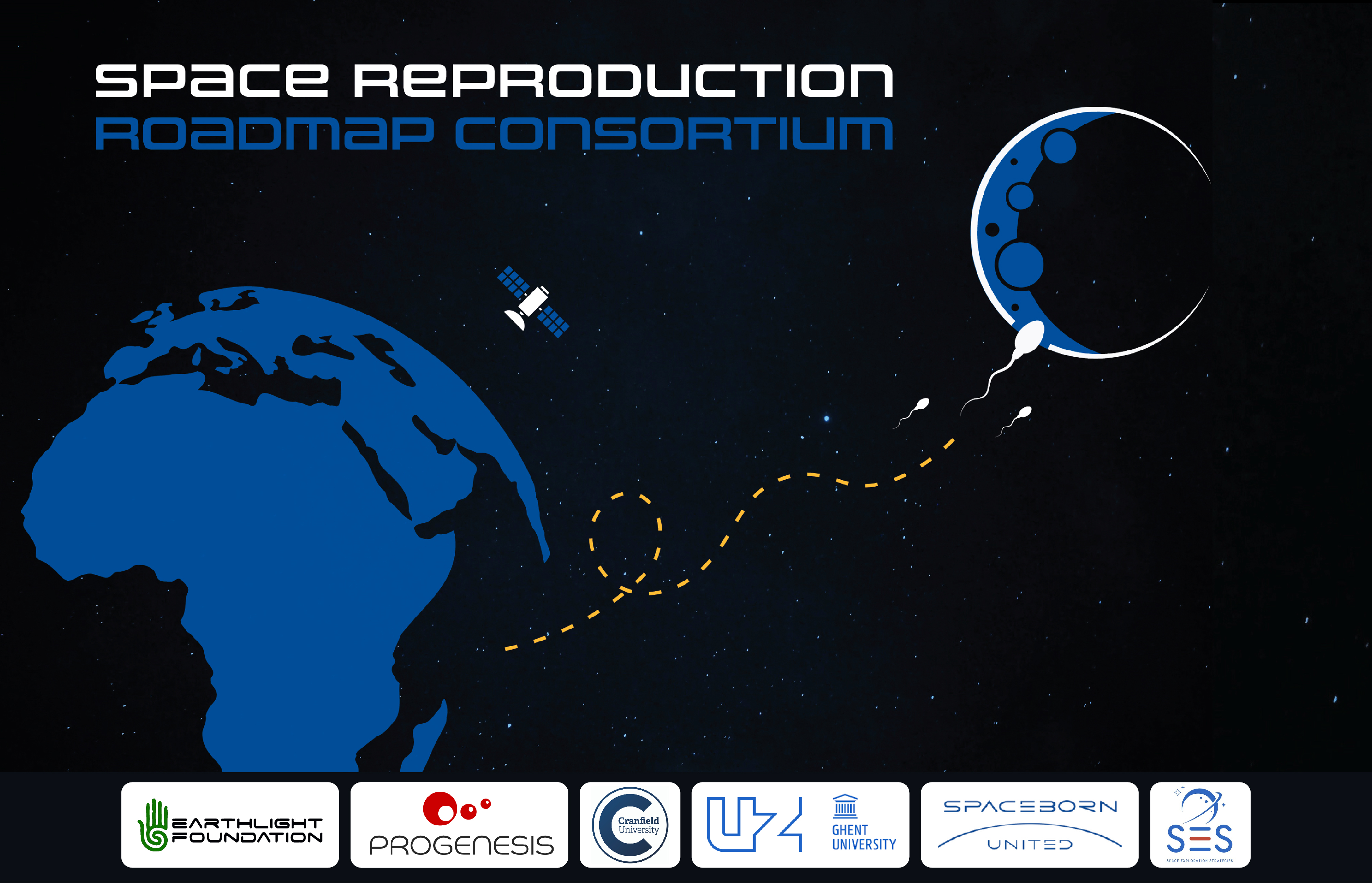Space Reproduction Roadmap Consortium
About spaceborn united
Developing a roadmap for reproduction in space
The Space Reproduction Roadmap Consortium (SRRC), initiated by SpaceBorn United, has been launched to address a fundamental question in space exploration: can humans safely reproduce beyond Earth? The consortium will unite scientists, technologists, ethicists, and policymakers to build a long-term, globally cooperative roadmap for conception, pregnancy, and birth in space.
After giving a number of presentations at international conferences, we continued to receive invitations to organize this symposium series. At this stage, SpaceBorn’s role is to ignite the spark that sets this emerging space research community in motion, with the aim of fostering a collaborative and shared effort.
The inaugural Space Reproduction Roadmap Symposium will take place on 26 and 28 September 2025. This event brings together experts from fields including reproductive medicine, space biology, bioethics, technology, geopolitics, and law. It marks the beginning of a series of symposia designed to create a responsible strategy for research into human reproduction in space. One month after the first event, a white paper will be published outlining initial priorities and milestones.
Why reproduction in space matters
As humanity moves toward permanent settlements beyond Earth, reproduction becomes unavoidable. While space research already supports progress on Earth in agriculture, medicine, and technology, sustainable life off-planet will require the ability to conceive and raise children in challenging conditions. To date, no conception has occurred in orbit, and systematic research into reproduction under microgravity and radiation exposure remains limited.
Space poses unique obstacles: partial and microgravity affect physiological processes, radiation increases genetic risks, and environmental stresses such as disrupted circadian rhythms may interfere with fertility and pregnancy. Very little is known about how reproductive organs, embryos, and childbirth would be influenced by these factors. Addressing these knowledge gaps requires interdisciplinary collaboration.
\ “Without the ability to reproduce, humanity’s presence in space will always be temporary."
A roadmap for science and society
The roadmap aims not only to support space settlement but also to contribute to advances on Earth. Insights into reproductive resilience in extreme conditions are expected to improve IVF treatments, maternal health, and fertility care globally. By coordinating knowledge across disciplines, the consortium hopes to accelerate progress both for space exploration and medical innovation.
About the symposia partners
The Space Reproduction Roadmap Consortium is being developed to create a coordinated and ethically grounded approach to research human reproduction in space and integrate existing research and related roadmaps. The consortium aims to realize this goal through a series of international symposia, where subject matter experts from multiple fields contribute to a practical roadmap for the global research community.
• SpaceBorn United: pioneering IVF and embryo culture technologies in space.
https://www.spacebornunited.com
• Cranfield University (Astrobiology and Space Biotechnology): extensive expertise in aerospace systems and biomedical research in space.
https://www.cranfield.ac.uk/people/professor-david-cullen-806115
• UZ Gent (Reproductive Medicine Research Group): advancing and applying assisted reproductive technologies.
https://www.ugent.be/ge/hsr/en/research/reproductive-medicine
• Progenesis: leading specialist in fertility innovation and reproductive medicine.
https://progenesis.com
• SES (Space Exploration Strategies): advancing space commerce and sustainability.
https://www.sestrategies.org
• EarthLight Foundation: promoting humanity’s expansion into space through cultural and scientific initiatives.
https://earthlightfoundation.org
Media contact
Dr. Egbert Edelbroek
egbert.edelbroek@spacebornunited.com
+31 644160058
www.spacebornunited.com












